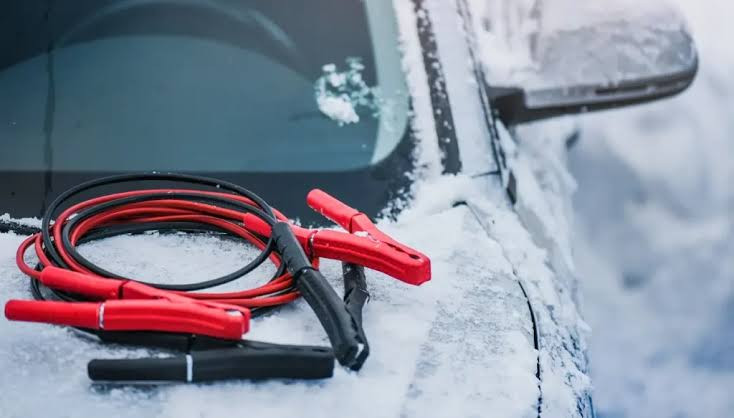Have you ever wondered why your car battery seems to lose power when it’s cold outside? Or why your car might not start at all on a freezing morning? If so, you’re not alone. Many drivers face this problem every winter, and it can be very frustrating and inconvenient.
In this article, I’ll explain how cold weather affects your car battery, and what you can do to prevent or solve this issue.
What is a Car Battery and How Does it Work?
A car battery is a device that stores electrical energy and provides it to your car when you need it. It’s usually located under the hood of your car, near the engine. A car battery has two main parts: the lead plates and the electrolyte. The lead plates are metal pieces that are connected by wires to the terminals of the battery. The electrolyte is a liquid solution of sulfuric acid and water that fills the spaces between the plates.
It works by a chemical reaction between the lead plates and the electrolyte. This chemical reaction produces electricity, which flows through the wires to the terminals of the battery. When you turn the key in the ignition, the electricity from the battery travels to the starter, which makes the engine run. The battery also powers the lights, radio, and other electrical systems in your car.
How Does Cold Weather Affect Your Car Battery?
Cold weather can have a negative effect on your car battery in several ways.
- Cold weather slows down the chemical reaction that produces electricity in the battery. This means that the battery can’t produce as much power as it normally does. A car battery typically produces only half of its usual power at temperatures of zero degrees Fahrenheit or colder. This can make it harder for the battery to start the engine or run the electrical systems in your car.
- Cold weather can cause the electrolyte in the battery to freeze. This can happen if the battery is not fully charged, or if the temperature drops below -75 degrees Fahrenheit. When the electrolyte freezes, it expands and can damage the lead plates or the battery case. This can reduce the capacity and lifespan of the battery.
- Cold weather can increase the demand for electricity in your car. When it’s cold outside, you might use more lights, heaters, windshield wipers, and other electrical devices in your car. These devices draw more power from the battery, which can drain it faster. This can also make it harder for the battery to start the engine or run the electrical systems in your car.
How Can You Prevent or Solve This Issue?
There are some things you can do to prevent or solve the issue of cold weather affecting your car battery. Here are some tips:
- Keep your battery fully charged. A fully charged battery can resist freezing and can produce more power in cold weather. You can charge your battery by driving your car regularly, or by using a battery charger or maintainer. You can also check the level of charge of your battery by using a voltmeter or a battery tester.
- Keep your battery warm. A warm battery can produce more power in cold weather. You can keep your battery warm by parking your car in a garage or a sheltered area, or by using a battery warmer or a blanket. A battery warmer is a device that wraps around the battery and plugs into an outlet. It heats up the battery and prevents it from freezing. A blanket is a simple cover that insulates the battery and protects it from the cold air.
- Reduce the use of electrical devices in your car. When it’s cold outside, try to use less lights, heaters, windshield wipers, and other electrical devices in your car. These devices draw more power from the battery, which can drain it faster. You can also turn off these devices before you turn off the engine, so that the battery can recharge while the engine is still running.
- Replace your battery if it’s old or damaged. A car battery usually lasts for three to five years, depending on how you use it and maintain it. If your battery is old or damaged, it might not be able to perform well in cold weather. You can check the age and condition of your battery by looking at the date code and the physical appearance of the battery. If your battery is more than five years old, or if it has cracks, leaks, or corrosion, you might want to replace it with a new one.
Conclusion
Cold weather can affect your car battery in several ways, such as slowing down the chemical reaction, freezing the electrolyte, and increasing the demand for electricity. This can make it harder for the battery to start the engine or run the electrical systems in your car. To prevent or solve this issue, you can keep your battery fully charged, keep your battery warm, reduce the use of electrical devices in your car, and replace your battery if it’s old or damaged. By following these tips, you can ensure that your car battery works well in cold weather, and that your car starts and runs smoothly.

Comments (0)
Please login to join the discussion
Be the first to comment on this article!
Share your thoughts and start the discussion